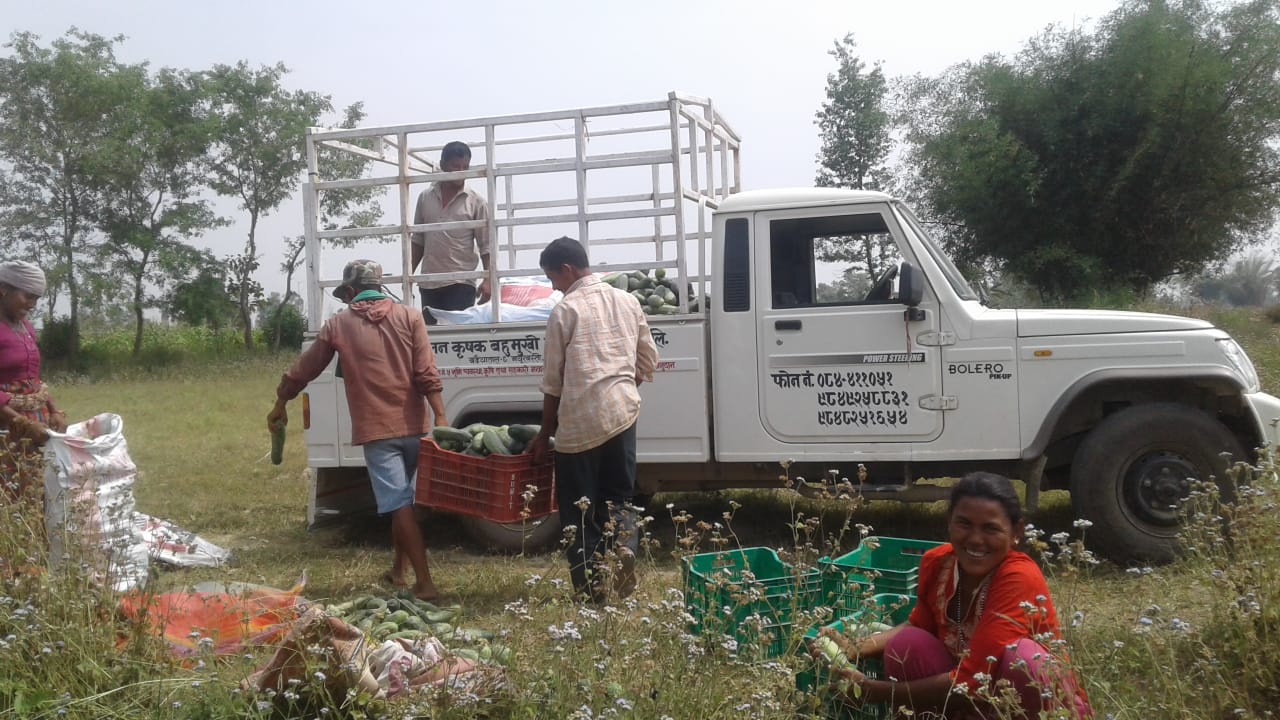
Nepal has been under lockdown for the last three weeks following the worldwide outbreak of the COVID 19 pandemic. ( since the last week of March 2020 ). Because of this, the smallholder farmers, are also facing a hard time marketing their agricultural products that were recently harvested. Despite this, the farmers from Kalika research group no. 1 at Badhaiyataal Rural Municipality -8, Bardiya are managing to send their surplus vegetables in the nearby market at Kohalpur, in coordination with the local agricultural cooperative- Milan Krisak Multipurpose cooperative limited.
The cooperative was formed in 2006 with the support of Caritas Nepal’s IPM /Cooperative program. This is now a ray of hope for the small holder farmers who are able to market the products during this situation.
A village resource person (VRP) of SAFBIN program from the community, is coordinating with the local authorities to get vehicle permit run by the cooperative so that the vegetables can be brought to the market. She is also in regular contact with the farmers regarding collection of the surplus volume in the villages and at the same time is coordinating with agriculture market in Kohalpur, and updates as per demand. 7 farmers of SAFBIN program were able to supply vegetables through this channel even though they are not members of the cooperative.
It was reported that during the last collection day, 8 quintal of bottle gourd, 12 quintal of cucumber and 30 Kg of Pumpkin tendrils had been collected and dispatched to the market by the cooperative. 7 farmers of Kalika research group have marketed 60 kg of bottle gourd, 100 kg of cucumber with the help of cooperative of the village at the rate of Rs. 40/kg for bottle gourd, Rs. 20/kg for cucumber and Rs. 50/kg of pumpkin tendrils.
The cooperative has been regularly collecting the vegetables from village and supplying the vegetables in every 4 days. The vehicle of the local cooperative was partially supported by Caritas Nepal implemented Nepal livelihood Resilient Program (NLRP) which is supported by Caritas Australia.